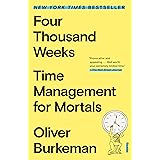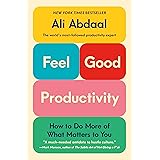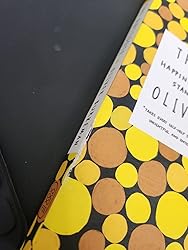
Enjoy fast, free delivery, exclusive deals, and award-winning movies & TV shows with Prime
Try Prime
and start saving today with fast, free delivery
Amazon Prime includes:
Fast, FREE Delivery is available to Prime members. To join, select "Try Amazon Prime and start saving today with Fast, FREE Delivery" below the Add to Cart button.
Amazon Prime members enjoy:- Cardmembers earn 5% Back at Amazon.com with a Prime Credit Card.
- Unlimited Free Two-Day Delivery
- Streaming of thousands of movies and TV shows with limited ads on Prime Video.
- A Kindle book to borrow for free each month - with no due dates
- Listen to over 2 million songs and hundreds of playlists
- Unlimited photo storage with anywhere access
Important: Your credit card will NOT be charged when you start your free trial or if you cancel during the trial period. If you're happy with Amazon Prime, do nothing. At the end of the free trial, your membership will automatically upgrade to a monthly membership.
Buy new:
$43.39$43.39
Ships from: Amazon Sold by: bookicooki
Save with Used - Acceptable
$13.63$13.63
Ships from: Amazon Sold by: Mystic Bazar

Download the free Kindle app and start reading Kindle books instantly on your smartphone, tablet, or computer - no Kindle device required.
Read instantly on your browser with Kindle for Web.
Using your mobile phone camera - scan the code below and download the Kindle app.

OK
 Audible sample Sample
Audible sample Sample 


The Antidote: Happiness for People Who Can't Stand Positive Thinking Hardcover – November 13, 2012
Purchase options and add-ons
The Antidote is a series of journeys among people who share a single, surprising way of thinking about life. What they have in common is a hunch about human psychology: that it’s our constant effort to eliminate the negative that causes us to feel so anxious, insecure, and unhappy. And that there is an alternative “negative path” to happiness and success that involves embracing the things we spend our lives trying to avoid. It is a subversive, galvanizing message, which turns out to have a long and distinguished philosophical lineage ranging from ancient Roman Stoic philosophers to Buddhists. Oliver Burkeman talks to life coaches paid to make their clients’ lives a living hell, and to maverick security experts such as Bruce Schneier, who contends that the changes we’ve made to airport and aircraft security since the 9/11 attacks have actually made us less safe. And then there are the “backwards” business gurus, who suggest not having any goals at all and not planning for a company’s future.
Burkeman’s new book is a witty, fascinating, and counterintuitive read that turns decades of self-help advice on its head and forces us to rethink completely our attitudes toward failure, uncertainty, and death.
- Print length256 pages
- LanguageEnglish
- PublisherFarrar, Straus and Giroux
- Publication dateNovember 13, 2012
- Dimensions5.75 x 0.75 x 8.25 inches
- ISBN-100865479410
- ISBN-13978-0865479418
Books with Buzz
Discover the latest buzz-worthy books, from mysteries and romance to humor and nonfiction. Explore more
Frequently bought together

Similar items that may ship from close to you
 What actually causes suffering are the beliefs you hold about those things.Highlighted by 2,027 Kindle readers
What actually causes suffering are the beliefs you hold about those things.Highlighted by 2,027 Kindle readers ‘If you accept that the universe is uncontrollable,’ Ellis told me, ‘you’re going to be a lot less anxious.’Highlighted by 1,553 Kindle readers
‘If you accept that the universe is uncontrollable,’ Ellis told me, ‘you’re going to be a lot less anxious.’Highlighted by 1,553 Kindle readers Confronting the worst-case scenario saps it of much of its anxiety-inducing power. Happiness reached via positive thinking can be fleeting and brittle; negative visualisation generates a vastly more dependable calm.Highlighted by 1,447 Kindle readers
Confronting the worst-case scenario saps it of much of its anxiety-inducing power. Happiness reached via positive thinking can be fleeting and brittle; negative visualisation generates a vastly more dependable calm.Highlighted by 1,447 Kindle readers
Editorial Reviews
Amazon.com Review
Review
“Burkeman's tour of the ‘negative path' to happiness makes for a deeply insightful and entertaining book. This insecure, anxious and sometimes unhappy reader found it quite helpful.” ―Hector Tobar, The Los Angeles Times
“Some of the most truthful and useful words on [happiness] to be published in recent years . . . A marvellous synthesis of good sense, which would make a bracing detox for the self-help junkie.” ―Julian Baggini, The Guardian
“The Antidote is a gem. Countering a self-help tradition in which ‘positive thinking' too often takes the place of actual thinking, Oliver Burkeman returns our attention to several of philosophy's deeper traditions and does so with a light hand and a wry sense of humor. You'll come away from this book enriched--and, yes, even a little happier.” ―Daniel H. Pink, author of Drive and A Whole New Mind
“Quietly subversive, beautifully written, persuasive, and profound, Oliver Burkeman's book will make you think--and smile.” ―Alex Bellos, author of Here's Looking at Euclid
“Addictive, wise, and very funny.” ―Tim Harford, author of The Undercover Economist
“What unites [Burkeman's] travels, and seems to drive the various characters he meets, from modern-day Stoics to business consultants, is disillusionment with a patently false idea that something as complex as the goal of human happiness can be found by looking in a book . . . It's a simple idea, but an exhilarating and satisfying one.” ―Alexander Larman, The Observer
“This is an excellent book; Burkeman makes us see that our current approach, in which we want happiness but search for certainty--often in the shape of material goods--is counterproductive.” ―William Leith, The Telegraph
“Fascinating . . . After years spent consulting specialists--from psychologists to philosophers and even Buddhists--Burkeman realised they all agreed on one thing: . . . in order to be truly happy, we might actually need to be willing to experience more negative emotions--or, at least, to learn to stop running so hard from them.” ―Mandy Francis, The Daily Mail
“Splendid . . . Readable and engaging.” ―British Chief Rabbi Jonathan Sacks, The Times (London)
About the Author
Oliver Burkeman is a feature writer for The Guardian. He is a winner of the Foreign Press Association's Young Journalist of the Year award, and has been short-listed for the Orwell Prize. He writes a popular weekly column on psychology, "This Column Will Change Your Life," and has reported from New York, London, and Washington. He lives in New York City.
Product details
- Publisher : Farrar, Straus and Giroux; First Edition (November 13, 2012)
- Language : English
- Hardcover : 256 pages
- ISBN-10 : 0865479410
- ISBN-13 : 978-0865479418
- Item Weight : 13.4 ounces
- Dimensions : 5.75 x 0.75 x 8.25 inches
- Best Sellers Rank: #201,399 in Books (See Top 100 in Books)
- #545 in Cultural Anthropology (Books)
- #2,441 in Happiness Self-Help
- #4,609 in Personal Transformation Self-Help
- Customer Reviews:
About the author

Discover more of the author’s books, see similar authors, read author blogs and more
Customer reviews
Customer Reviews, including Product Star Ratings help customers to learn more about the product and decide whether it is the right product for them.
To calculate the overall star rating and percentage breakdown by star, we don’t use a simple average. Instead, our system considers things like how recent a review is and if the reviewer bought the item on Amazon. It also analyzed reviews to verify trustworthiness.
Learn more how customers reviews work on AmazonReviews with images
-
Top reviews
Top reviews from the United States
There was a problem filtering reviews right now. Please try again later.
This book is about re-definition not about how to survive the status quos. It will point into the direction of self-discovery and personal change but it will only help you if you are willing to dig deep into your own mind to find the flaws in your thinking. This is not a “ do this and that will happen” type of book; it’s not a receipt book. It does not give you answers- it provokes thinking. This book is far better than the numerous other self-help books I have read, because it takes into account that we all have different needs, we all came from different roads even if we ended at the same intersection. Happiness is a personal interpretation; it means different things to different people since we all have different personal emotional needs. I believe this book can help dismiss the fallacy that happiness comes from the outer physical world of materialism and/or the interactions between people in your life. True happiness must come from within and this book in a fun and enjoyable way has tough me how to understand and tap into to beauty within.
I highly recommend this book, it’s an easy and enjoyable read, it can also be useful for the struggling young high school student, too. I have already passed it on to others in my life I though could benefit from its wisdom. I have also purchased it on audio C/D for my husband to listen in the car on his way to work.
If you’re considering this book buy it, you won’t regret it.
I can’t say this is a outright criticism, but I will comment that the book leads you thinking without conclusion, perhaps even less certain than before. Nonetheless, there is a Rie and slightly welcome and dry British humor underlying the entire work and left me feeling I had spent my time well reading this and also validating my usual cynicism towards the banality of positivity pushed onto us so pervasively. The overall message is much like Alan Watts might offe: be OK with it all, even the not-OK, which all part of the WAY IT IS. What else could there be then. (Watts is mentioned in the book a lot too by the way).
The chapter on Death is superb and worth the entire cost of the book.
What is problematic, as this book points out, is *over-attached* positive thinking. It's more the ATTACHMENT to positive goals than the fact that the goals are positive that is the problem. And this is a problem for MOST people in Western culture, not just those who are cynical enough to be repelled by Norman Vincent Peale and his ilk.
Through an amusing array of journalistic anecdotes--his visits to places such as the Insight Meditation Center in Barre MA, "The Museum of Failure" in Ann Arbor, the death shrine in Tepito, Mexico and to a lively cemetary during Dia de los Muertos (Day of the Dead) in Mexico, or the slum of Kibera in Kenya, and his interviews or summaries of the work of characters such as the ever-crusty Albert Ellis, the ephemeral Eckhardt Tolle, or security expert Bruce Schneier (noted for his opposition to the 9/11 security crackdown)--Burkman makes his case for "the negative path to happiness."
The negative path to happiness is to embrace insecurity, failure, and death--to learn that these are inevitable aspects of life, and to gain the perspective that death and impermanence are the very things that make life and our positive experiences so precious, and that our repeated failures are what lead us to eventually succeed--and to, above all, learn perspective and non-attachment to experiences and outcomes, and the art of non-doing, in opposed to our more typical goal-striving and grasping, which often ironically backfire to make us miserable rather than happy.
In the course of the book, Burkman reviews approaches such as those of the Stoic philosophers and the Buddhists, and touches on psychological theories such as Dan Wegner's theory of ironic processes ( White Bears and Other Unwanted Thoughts ), Albert Ellis's distinct brand of cognitive behavioral therapy (with its emphasis on how the "Musts" that we create for ourself are what create our misery, and how embracing the worst case can make us realize that what is actually happening is not so bad in comparison) ( How to Stubbornly Refuse to Make Yourself Miserable about Anything: Yes Anything! ) and Ernest Becker's theory of the denial of death (and associated modern research from terror management theory)(e.g., In the Wake of 9-11: The Psychology of Terror ), and work from theorists who stress the downside risks of goal-setting ( Destructive Goal Pursuit: The Mt. Everest Disaster ).
Reading Oliver Burkman's book was, for me, like going to a convention--there was the chance to mingle and catch up with old friends (including, for me, Shoma Morita Constructive Living (Kolowalu Books) and Irving Yalom Love's Executioner ) and to meet like-minded new ones, and there was a huge buffet of ideas, each one of you are provided a chance to nibble at. But for each person that you meet in the book, there is just the chance to say hello and never the chance to fully catch up, and for each tasty morsel, there is just a nibble. Burkman succeeds in bringing together and finding commonality in a wide variety of ideas, and for that he is to be commended. This is more a book to whet the appetite than to provide any true satiation--but as any Seeker knows, one grows from the process of asking and seeking answers to questions, not from having the answers themselves.
For what it is--a journalistic account, and not a philosophical treatise or psychological theory--this is an excellent and entertaining book.
********************************************************************************************************************************************
There are three things that I wish were improved.
First, his final chapter summarizing the "negative path" to happiness could have been more substantive--the best material on "the negative path" is in the first chapter of the book, and could have been reiterated and elaborated more in the conclusion.
Second, while hugely wide-ranging and having the idea that some people will be turned off by positive thinking in the very title, Burkman somehow missed out on the wonderful work on defensive pessimism (see The Positive Power of Negative Thinking: Using Defensive Pessimism to Harness Anxiety and Perform at Your Peak , which would help address the question of which people might be turned off by the positive thinking approach and why. Some people are more motivated by "approach" and others by "avoidance"--and this issue will be explored in the forthcoming book Focus: Use Different Ways of Seeing the World for Success and Influence , whose publication I eagerly anticipate.
Finally, the book, by its nature, lumps all positive thinking together and doesn't get at its nuances. There is wonderful work done in the field of positive psychology, and the idea of balance--that happiness involves BOTH removing the causes of unnecessary suffering (which is what "The Antidote" focuses on) AND adding potential causes of happiness (for example, remembering to do a "Gratitude check," expanding one's social network, and doing "random acts of kindness" for others)--is missing here. (People interested in exploring a more balanced approach which combines these ideas might explore the work on Acceptance & Commitment Therapy, developed by Steven Hayes but most readably introduced by Russ Harris ( The Happiness Trap ), and might also explore valuable works in Positive Psychology such as Sonja Lyubormirsky's The Myths of Happiness: What Should Make You Happy, but Doesn't, What Shouldn't Make You Happy, but Does , which is about how we can do a great deal to make ourselves happier by stopping believing/doing those things which we think will make us happier but actually make us miserable--an idea which fits very well with "The Antidote."
As the Buddhists say, "pain is inevitable, suffering is optional." (I would add to that, "joy is possible, but fleeting.") Reading this book and further exploring the ideas and approaches you are introduced to here can be a way learn to avoid that suffering.
Burkeman helps distill some of the core unifying concepts across these different schools of thought and puts to words some of the ideas that had been rattling around in my own mind for quite some time.
I don’t think I needed to read this book (while I certainly don’t regret it), but I can think of some people who do.
Top reviews from other countries
The insights on how one can develop nagative capability, like a skill using vipassana, teachings of Eckhart Tolle
and his personal experince among many other studies is fascinating.
1. 幸福を必死に追い求めることは間違っている。幸福はせいぜい目の片隅からチラリと見る程度が良いようで、本気で真正面から見つめてはいけない。どうしたら幸せになれるだろうなどという質問は、質問自体が単純に間違いで、そんな問い掛けには答えは無いと諦めて、もっと意義のある生産性のある事柄に忙しく取り組むべきだろう。幸せを感じたいと努力すればするほど、それが我々を惨めにし、ポジティブに考えようとすればするほどそれが我々を不安にし、不確実、失敗、悲しさなどのネガティブな感情を引き起こすものだ。
ポジティブ思考自体がビジネスになっておりマインド次第でなんでも達成可能だという情報、セミナー、出版物が大量に売られれて消費され続けている。(米国の元大統領、軍の元トップ、著名なコンサルタントと宗教家などが巨額の講演料を全米各地で頻繁に得て商売のネタにしている。) 米国のビジネス世界では野心を持って本気で望めば手に入るという文化のもとで失敗の可能性について語る事は遠慮される。 クリスチャンサイエンスなどの宗教では、気の持ちようで体の衰えと不健康さえも治癒できると言う。
ところがいくつかの研究からのエビデンスによれば、怒りを発散させても怒りから目を背けても、怒りの感情から逃れられないし、ゴールを思い浮かべて実現を信じ込んでもゴール達成の可能性が上がるわけでもない。また比較実験によれば、悲しみに際してリラックスする音楽を聴いたり、近親者を失った苦しみを癒す努力をすればするほど逆効果で、リラックスできずにパニックしたり苦しみが余計に強くなり長引くことが明らかになっている。
人はポジティブ思考をしょうと、またネガティブに考えないようにと自分の心をスキャンしてネガティブな思考に気付き、さらにポジティブ思考の度合いがもっと高く在るべきだと自分を責めるという一連の自虐思考のサイクルを始める。また、人は心の中に自身で築き上げた自己評価を持っており、それよりもポジティブな評価を無理に行っても自己の認識全体との整合性がなく心の中に定着せず最終的には自分が傷つきポジティブな評価をリジェクトしてしまう。
まず最初にやるべき事は、ポジティブを本気で追っかけ回す事をやめる事だ。
2. セネカとストア派の哲学者たちは、前もって最悪のケースを予期しておけばそれが現実に起きたとしてもダメージが少なくて済むと Negative Visualizationを提唱している。うまく行かない可能性を否定し目を背けて考えないのでは無く、最悪の状況についてエレガントに継続的に静かに宥めながら考え続けることを提案している。より具体的に何を言っているかを見て行こう。
人の心の外の世界の事象にはポジティブもネガティブも無い、人の心が外部の事象について考えて良し悪しを判断し、苦しんでいる。ローマ皇帝Marcus Aurelius曰く、事象は人の魂に直接は触れないが人がそれらに付いて持つ意見と判断が人の魂と心を混乱させる。どんなに酷いことが起きても事象自体はネガティブでは無いので、その事象について、それって本当にそんなに酷くて悪いことなんだろうか?と自問し問い直してはどうか。
将来に関するやむ事の無い楽天主義は、物事が望むように行かないとショックを大きくするだけであり、ポジティブ思考だけを保持しょうと強く思っていると現実が最終的に望んだようにならない状況に対して準備もできず打ちのめされる。
人は自身に、全てうまく行くと確信させたいし、他の人にも自身を説得しそう確信させて欲しがる。これは短期的には良い効果があるかもしれないが楽観主義による確信の常として必要な確信はどんどんエスカレートし、同時に、最悪のケースが起きた場合は本当に酷いことになるだろうという思いを強くさせることになる。確かに、現実には全てがそううまくは行かないが、ただ思った程には酷くもならないものだ。非理性的な楽観主義ではなく、もっと理性的に現実的にどこまで悪くなり得るか時間を掛けて想像を働かせ正確にビジュアルに思い浮かべて考えることに思いを致すべきであろう。ポジティブ思考で得られる幸福感は束の間のものであり脆いが、Negative Visualizationではもっと頼りかかる事のできる静けさを得られる。
3. 人の感情と思考は移りゆく天気のような物。仕事をやる気がしない時にやる気を起こし気持ちをポジティブ思考に変換しょうとする必要は無い。やる気のなさをさらりと認識しそれと共存しながら何はともあれ行動に集中することはできる。
禅の瞑想は人生をより楽しくしたりより幸せに感じさせる為にするものでは無く、何とかして不快な感情を心地良い感情に換えようとか、何とか自分の辛い経験への拘りと苦しみを乗り越えようとか、そういう試みを努め続ける事を止めて、幸せを追いかける事を即捨て去り止める事を学ぶことだ。それによってより深い平和な心持ちに到る。人生には痛み、苦しみは有るがそれらを有るがまま、また去来するに任せて、今まさに現時点に注意を集中する事だ。
過去の偉大な業績を上げた芸術家と著作家たちはモチベーションの上げ方とかやる気とインスピレーションの得方に関して語ることは極めて稀で、逆に仕事の進め方のメカニズムと気分に関わらず成果と実績を上げる事にフォーカスする事についてしばしば語り、何時からどれぐらいで何ページ書くとか極めて具体的に自らに課した決まりについて細かく残している。ある芸術家は、ポジティブ思考とやる気を気にするのはアマチュアだけで、それ以外の人は、単に立ち上がって仕事に取り掛かるだけだと語った。
人は好きな事をやって、トラブル無しの生活を送りたいと思い、不快、退屈などの感情をマネジしポジティブ思考に変換し人生をより意味あり効率的生産的に過ごしたいと考え、多大な精神的エネルギーをそれ(ポジティブ化)に費やすが、その事自体が人の足を引っ張り前へ進めないようにしている。人は思考と感情を変える事なく不快、恐れ、退屈などの否定的な感情を抱えたまま行動し具体的なアクションを起こせる。森田療法では、思考と感情は移ろう天気みたいなもので、人はそれと平和裡に共存できる、と説く。
4. ゴールへのこだわり
ポジティブ思考を売る人々はSMARTゴールを設定せよと言う。これは、specific(明確に特定した), measurable(数値で測れる達成), attainable(獲得可能な), realistic(現実的な), and time-bounded(時間軸が設定された) ゴールという事。 エール大学の1953年卒業生を対象にした調査で卒業生の3%だけが明確に特定された人生のゴールを文書化していたが、20年後にフォローアップ調査すると、その3%の合計が残り97%の合計よりも大きくファイナンシャルな富を蓄積していた。この話が教育界、ビジネス界などで著名コンサルタント達の著作とセミナーで何度も引用され計画する事とゴール設定の重要性を指摘されてきたが、エール大学公式同窓会の調査で、この話が全くのでっち上げだと判明した。1953年卒業生に対するそのような調査は行われていなかったし、調査結果もどこにも存在しなかった。(嘘のような、、、、)
エベレスト登頂での多くの悲劇を分析すると、不確実性が人に将来を理想化させ、ちょっと頑張って計画を実行すれば全てはうまく行くと自らに言い聞かせてしまう事がわかる。人は最悪の死よりも不確実性を恐れて計画実行中うまく行かない時にに、何か一つを変えることで対処しょうとするが複雑系の現実世界でたった1つのパラメーターを変える事が他にどう影響するか予測することは極めて困難でそこから問題が発生する。
5. そこにいるのは誰? 今のあなただ。
楽観主義カルトは将来に幸せになり成功することを探し求めるので、幸せは現在ではなくいつか将来の別の時に得られると強く主張する。そのスキームと計画は現在という唯一幸せになる事ができる時と場所に関しての不満足を煽り立てる。
人の人生は今しか無いのに、将来幸せになる事にフォーカスして今を生きないでいつ迄待っても来ない将来を重要としていると、人生の全てを失ってしまう。
あなたの将来の問題を解決しょうとするよりも、今のあなたには何か問題あるのかと自問すると良い。あなたが身体のどこかに痛みを抱えているので無い限り、答えは「何も問題はない」となるだろう。ほとんどの問題は将来(5分後、5年後?)にいろんな事がどんなに悪くなるだろうか?という事か、過去に起きた問題について考え悩んでいるという事であり、今まさに現時点での問題を特定することは不思議ととても難しい。
6. 安全ってことはある種の死だ。
7. 失敗博物館
ほとんどの新製品、約90%は失敗する。
成功したある起業家は、自分の成功の要因として忍耐強さとリーダーシップを挙げるが、その二つの資質は酷い失敗をした起業家多数も持っている。またある億万長者は、自らを律しドライブをかけて仕事に邁進し、学術的に知的ではないが現場の実情に詳しく、そして徹底的に質素であることを成功の原因として語ったが、その億万長者は一つの人生を1回しか生きていないので、複数の人生を生きてそれらの要因が成功の要因だと比較調査の結果を語っているわけでは無い。 たまたま運が良かっただけかも知れないし、彼が成功の要因と思っていること以外が実は理由だったかも知れない。(成功者が全員毎日歯磨きをしているからと言って、それを成功する要件とは誰も言わないだろうが、成功者が尤もらしい要件を成功の秘訣として語ると、偶々運が良かったのか、他に真の理由が有るのか、確かめようも無いのに納得してしまうのは如何なものか?)
我々はしばしば目標、ゴールを自らのアイデンテティの一部に取り込んでしまうので失敗が我々自身への攻撃となる。彼が何なにをやろうとして失敗した、と言う代わりに、彼その人(彼の存在)が駄目で失敗だ、と考えてしまう。
(JK Rowling at 2008 Harvard Graduation における 失敗の利点に関するspeech) なぜこのような場で失敗の利点について話すのか? それは失敗が非本質的なものを全て剥ぎ取るからです。失敗する事で私は私以上のもの又私以外の者で有るフリを自分に対してする事を止めました。そして私の持っている全てを、全てのエネルギーを私にとって重要な事柄だけを完成させることに振り向けました。私は失敗することで最も恐れていたことが現実となりながら、それでもまだ生きている事で、完全に恐れから解放され自由になりました。失敗することで心の内なるセキュリティを獲得しました、それは大変辛い状況を経て得たものですがどんな資格試験に合格するよりも真に値打ちのある能力です。
8. 汝、死すべきものなり、死ぬんだという事を忘れるな!(ローマ帝国で皇帝就任、凱旋将軍などを祝うパレードで馬車に乗った皇帝・将軍当人の耳元で同乗した奴隷が囁き続けた言葉)
なぜ人は行進しながら絶望的な戦場に向かえるのか?それは、各人が心の底では隣にいる男は可哀想に死ぬんだと同情し、彼自身は大量出血のショックを感じるまでは自分だけは大丈夫というファンタジーの中に居るからだ。人は死ぬんだという事を考えるけれど、自分が死ぬという事について考えないように常に足掻いていて大体においてそれがうまくいって考えずに済んでいる。(白熊の事を何分間考えずに居られるか?というゲームと違って、自分の死については考えないことに成功する。)
人が死ぬのは何が問題か、じっくり考えると、生きるのを止めるので生きている事で味わう利益、楽しみを味わえなくなる事。 人は自分が忘れられることにでは無く、人生を人生たらしめる意味ある活動が終わり止まってしまう事に大きな不安を感じる。よって人生の楽しみを大切に思い楽しんでいるほど、人生を楽しみ尽くそうとし、気を散らせることが少なくなる。例えば、素晴らしいレストランでの1度きりの食事と同じで、食事は永遠には続かないし、別の機会も無いし、この一食を徹底的に楽しもうとするだろう。(隣のテーブルに香水の匂いが強すぎる女性が居ようが、イライラして気を散らしたり不平を言って無駄に時間を費やさずに味覚に集中するだろう。)人は死ぬ事を覚えておくと死の床で自分の人生をどう使ったかを後悔しなくて良い生き方をできる可能性がある。どうも人は死をいつも斜めから見て、起きるかも知れないことと思っているが、起きる事とは思わないようだ。
人は死と向かい合うとき、重要だと思っていたもの全てを見直して、外部からの期待、失敗するとか恥をかく恐怖とかなどは全て消え去り、真に重要なものだけが残る。S. Jobsのスピーチにあるように、死ぬんだということを思い出すのが、自分に何か失う物があるという勘違いから逃れる一番良い方法だ、人は既に死ぬ事が決まっているわけだから素っ裸で失うものは何も無い。そう考えて意味ある生き方をする事により将来後悔する可能性を小さく出来て、それが死の恐怖をほとんど無力にする。死の恐怖は、人生をちゃんと生きなかったという後悔の度合いと正比例する。最後の心臓の一鼓動で作品に最後の一筆を描いて死ぬ事ができれば、死は死んだ男の空っぽの骸を持って行くことしかでき無い。
毎時が人の命に傷を負わせ、最後の一刺しで殺される。
今、80歳だと思っての頭の体操として、人生を振り返って、何にもっと時間を費やし、何にはより少ない時間を費やすようにしたかった、と考え文章にしてみるのは、死ぬ事を思い出す良い練習になる。
9. エピローグ ポジティブ思考への解毒剤 終章
ポジティブ思考に対して、ネガティブ対応能力というコンセプトを提案したい。それは、不確実性、不思議(ミステリー)、疑いに対して、事実と理由を把握した後は、苛立ちながら何らかの結論とアクションには急いでは到達せず、それらの中に平静を保って留まっていられる能力だ。
人の才能、能力のうちで最も重要なのは、完全、確実、快適を切望する気持ちに気付きながらも、慌てて解決策を探らず、それらを短絡的に達成すべくは動かない事だ。深い幸福感のためには、完全さと快適さ探しへの中毒症状を治して、不完全で良しとし、解決策の条件を緩める必要がある。
人は歴史的に、ポジティブである事と、幸福になるために何をやるという行動スキルをを過大評価してきた。逆にネガティブに不確実と疑いの中にいて解決に向けた行動を取らない事を過小評価してきた。その結果、人は人生の貴重な時間を余りにも多大に、Closingのために費やしている。
モチベーションを上げるテクニックを横によけて、まずはやるべき事を実際にやる。
“今、何が問題なんですか?“という問い掛けは、将来の幸福のためにポジティブになろうとしている人への素晴らしい解毒剤だ。又、森田博士の“事に取り掛かり、必要な行動を取るのにモチベートしやる気になる必要は全く無い、単にやりなさい。“というのがこの本を書くにあたっての必須の考え方だった。
最悪の事態を想定しイメージするというのは、酷い状況が起こるかと心配していても、有り得る本当の最悪の状況を想定し、それに理性的に又詳細に対応を検討していくと、どうなってもやりくりし共存して行く事ができる事がわかり安心するものだ。
老子の、よく旅する者は決めた旅の計画を持たず、どこに到着しょうとも思っていない、旅する道が目的地だ、というのが結論だろう。
















